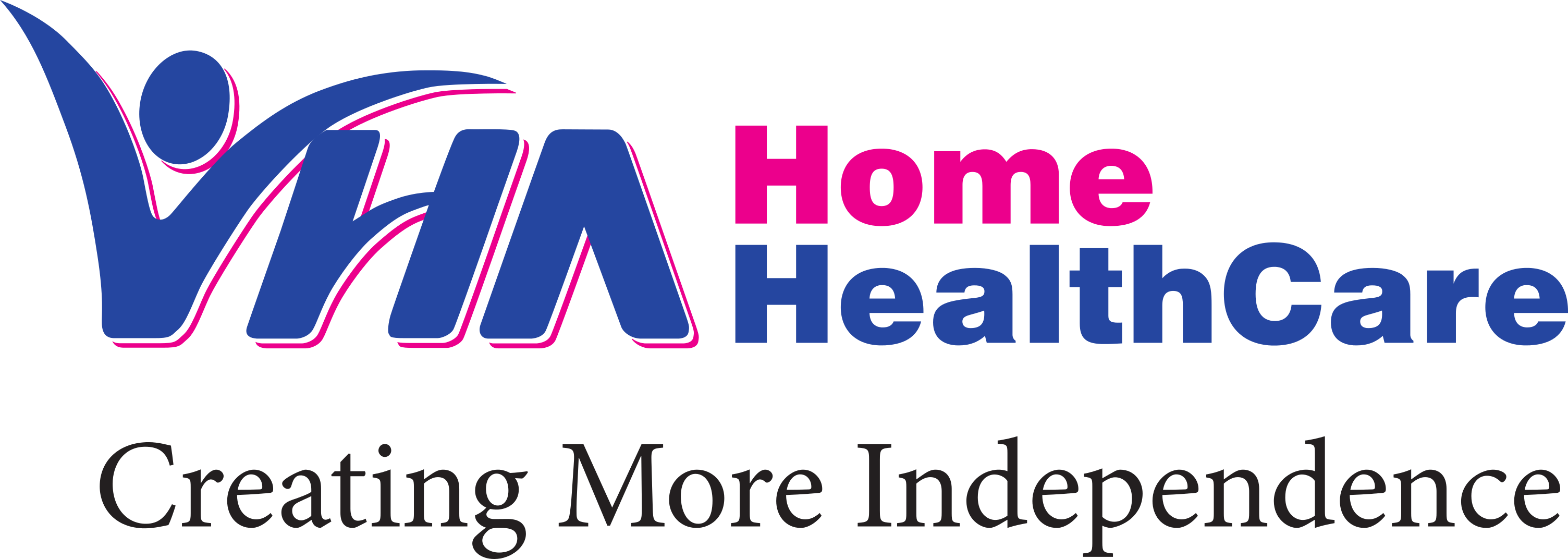VHA Paediatric and Palliative teams explore caregiver resiliency through virtual interprofessional education days

This month, VHA Home HealthCare passed two impressive interprofessional education milestones. VHA’s Paediatric team held its fourth annual education symposium, also known as PIES Day. PIES had been such a success in previous years that the palliative team joined in and hosted the first-ever Palliative Interprofessional Education Symposium, thoughtfully named PALLIES Day. This year’s events took place virtually.
“The event has come so far in four years. Regardless of how we’re meeting, I’m personally delighted that PIES lives on,” shares Kathryn Nichol, Vice President Quality, Best Practice, Research and Education and Chief Nursing Executive at VHA. “And I’m thrilled that we are taking the success of the paediatric symposium to our well-deserved, spectacular palliative team.”
“In our new world of integrated care and Ontario Health Teams, we are working together often, but it’s really nice to be learning together as well,” she adds.
This year’s PIES and PALLIES theme was Resiliency. In addition to VHA clients and their family members and VHA’s interprofessional paediatric and palliative teams, keynote speakers from the Temmy Latner Centre for Palliative Care, SickKids Hospital, and the Region of Durham were also invited to tune in and share learnings with the group.
Here are some highlights from the keynote presentations:
Managing Stress and Building Resilience: Working Well During a Global Pandemic
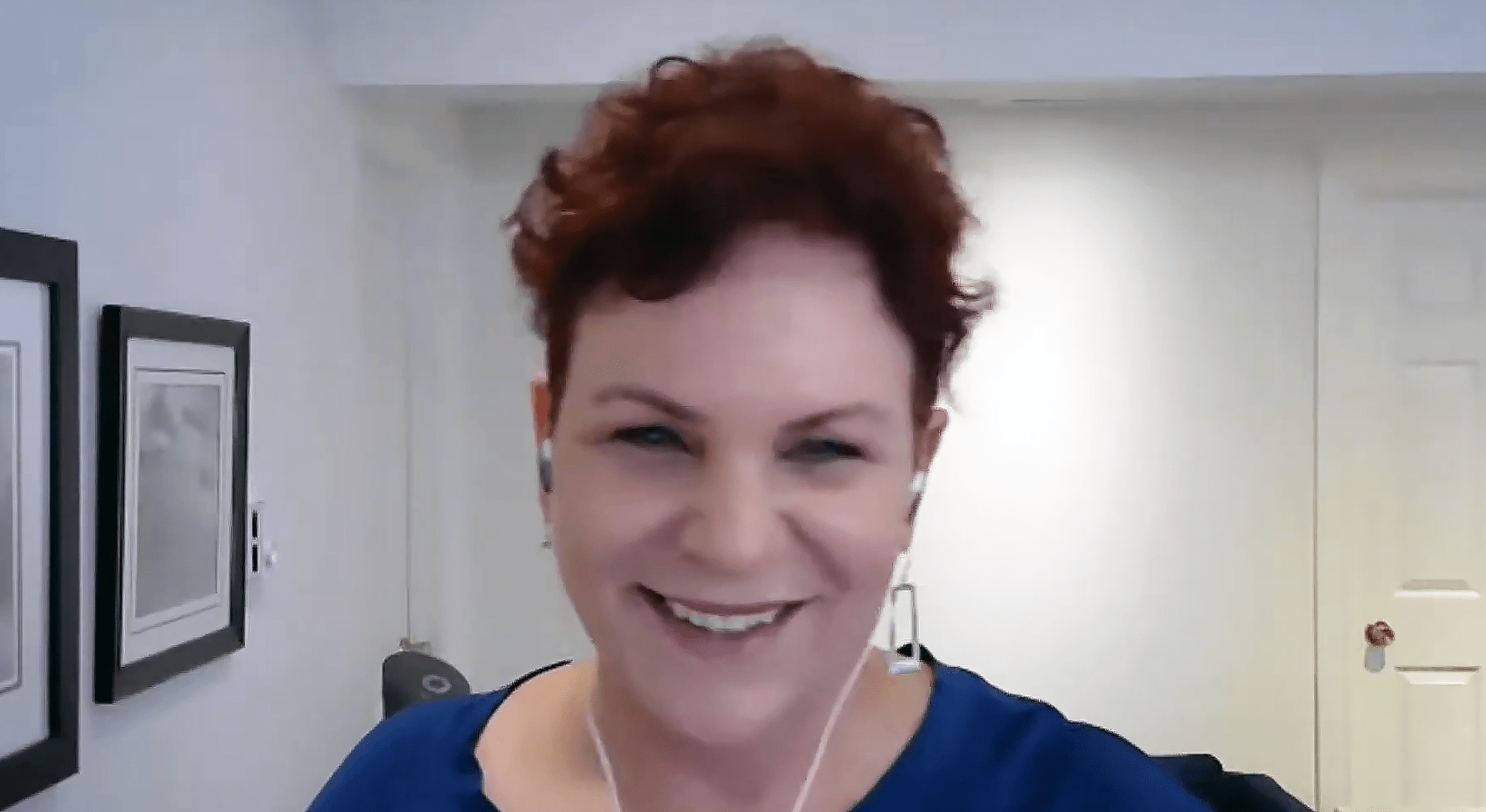
Jo-Ann Ferreira about how healthcare professional can build resilience during COVID-19
Keynote speaker Jo-Ann Ferreira, B.S.W., R.S.W. and M.Ed kicked off PALLIES Day by presenting the group with strategies to feel grounded and harness inner resiliency during times of uncertainty.
“We are done with the surge of adrenaline that we had at the beginning of the COVID-19 pandemic,” says Jo-Ann.
“The brain is always under the illusion that it can predict the future well, so it’s busy planning and rehearsing for a future that we are uncertain about.”
Jo-Anne shared ways to help combat stress and anxiety and boost inner energy levels. Throughout her session, she led the group through meditative breathing and grounding exercises.
Even the Experts Burn Out: Burnout and Developing Resiliency
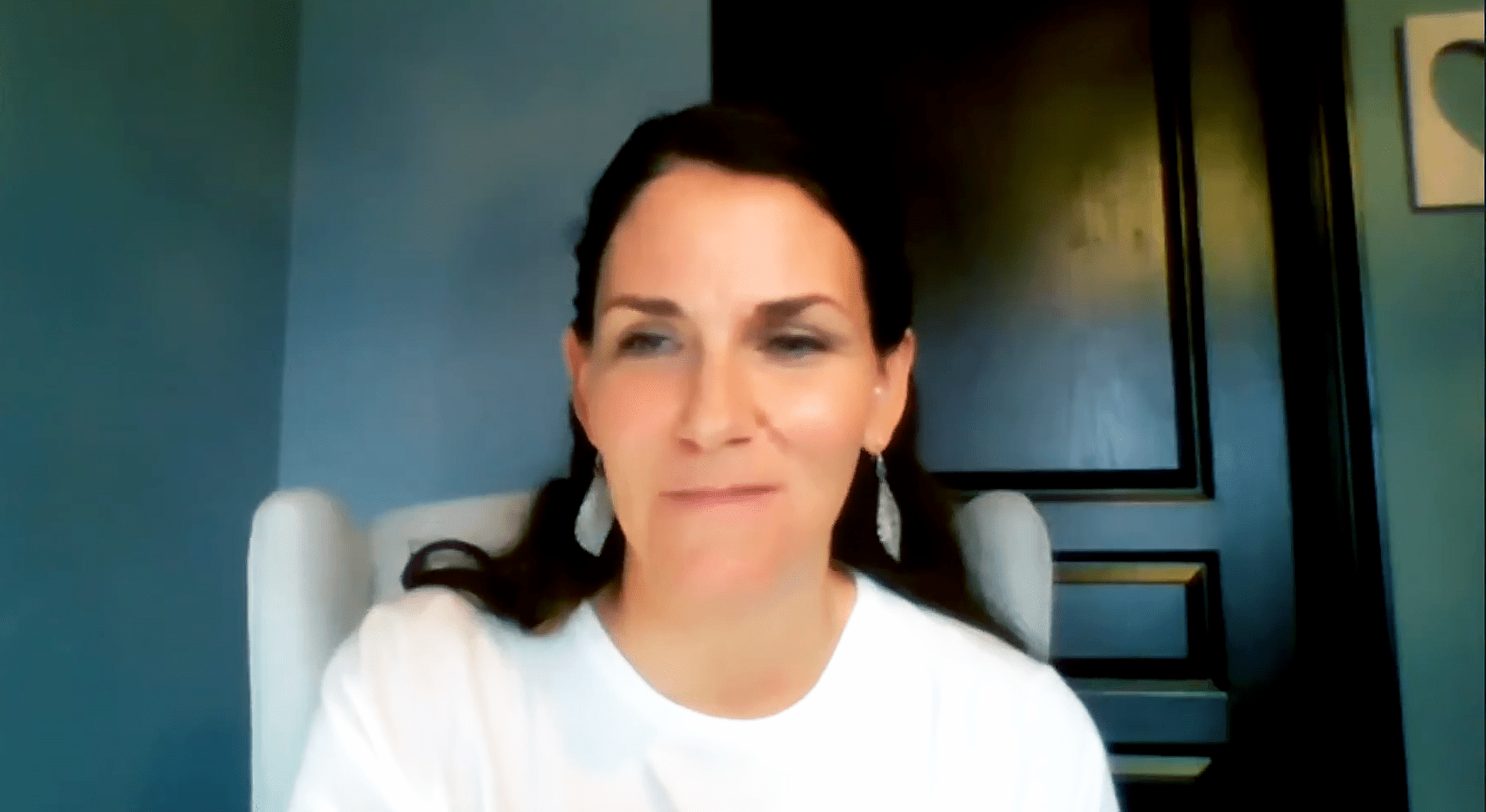
Amy Archer encourages VHA’s staff and service providers to talk about the ‘elephant in the room’ and explore their emotional and mental limits at work
Amy Archer, Palliative Pain and Symptom Management Consultant in the Durham Region was the second guest speaker of the day. She shared her own story of burnout and offered insights centred around the importance of self-awareness, the ability to calm down the nervous system, and understanding when you are at your limit mentally and emotionally.
“Burnout is telling us that our old ways of relating are not working and we need to stop, rethink, and find a new way forward,” she says.
“Even though we do this work every day, what we witness and what we navigate can illicit some challenging feelings, but there’s opportunity to grow from these lessons learned and I’m glad to be at that stage in my journey,” Amy adds.
Countertransference & Palliative Medicine
Dr. Jennifer Shapiro is a home care physician with the Sinai Health System Temmy Latner Centre for Palliative Care. Dr. Shapiro joined PIES Day to share her learnings about Transference and Countertransference in Palliative Medicine.

Dr. Jennifer Shapiro. Photo courtesy of the Temmy Latner Centre for Palliative Care
Dr. Shapiro explained that transference is a theory which was coined by Sigmund Freud, referring to the unconscious redirection of patient’s feelings, attitudes and desires onto the clinician, often deriving from close relationships earlier in life. In contrast, countertransference is the unconscious redirection of a clinician’s feelings and desires onto a patient or client.
Throughout her presentation, Dr. Shapiro reviewed personal case studies to showcase to effects of countertransference and presented a model for self-monitoring and reflection to make more objective care decisions.
“In many ways, countertransference is why we develop burnout and compassion fatigue, and we have a hard time recognizing our feelings and end up feeling less resilient,” she shares. “And these feelings are not exclusive to palliative care. This is a universal problem that everybody experiences at some point in their life.”
The Caregiver Experience
Laura Williams, Client Partner and Member of the Client and Carer Advisory Council at VHA also joined PIES Day to share her experience. Outside of her role with VHA, Laura works as the Director of Patient Engagement with the University Health Network.
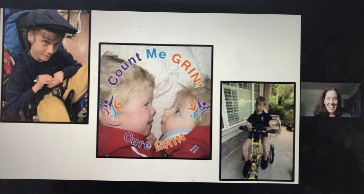
Laura Williams, VHA Client Partner during PIES Day in 2020
One of Laura’s two sons is a paediatric client with VHA. Laura explained that through moments of uncertainty surrounding her son’s previously undiagnosed condition, her family found the resiliency and hope for them that much of the world is now learning through the COVID-19 pandemic.
“Our lived experience with medical complexity is similar in some ways to the world’s experience with COVID-19. In many ways, this is how we’ve lived our lives for many years because the world is often not accessible.”
Laura left the group with some thoughts to consider about what caregivers and families might be experiencing in their own resiliency journeys, including a key kernel of wisdom she shared with VHA’s Paediatric Team.
”For those of you who do home visits, you may not be aware of how much clients or families anticipate the doorbell announcing your arrival,” Laura says.
“Anyone who comes into our home has become a part of our family history.”
Striving & Thriving Together Across Transitions
The last keynote speaker of the day was SickKids Hospital’s Krista Keilty, Associate Chief of Interprofessional Practice – Connected Care & System Integration. Krista joined the group to share her learnings and insights about working together in transition from hospital to home, and across the pandemic.
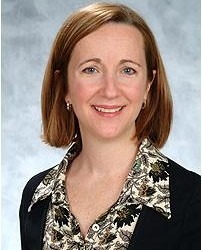
SickKids Hospital’s Krista Keilty, Associate Chief of Interprofessional Practice – Connected Care & System Integration
Connected Care is a program that works to enhance experience with transitions and build confidence, competence and shared understanding among children with medical complexity, their families and health care providers. Funded by the Ministry of Health and Long-term Care and located at SickKids, Connected Care offers a range of services and partners across the continuum of care to coordinate, improve health and safety, spread standards of paediatric practice and deliver greater value across the health system.
“I have been working in the SickKids-to-home care space for more than 30 years and I’ve appreciated partnerships with the many VHA nurses, PSWs, and rehab specialists I’ve met along the way.”
Krista kicked off her presentation by sharing how experiences early on in her nursing career working in home care led to the role she’s in now.
“To fast-forward 30 years ahead, it’s my grand privilege to work with Connected Care to continue to work in the field that brings hospital to home and home to hospital, to build on shared understanding, ways of moving forward, ways of supporting each other to be strong enough and to bounce back when we have tough times together,” Krista says.
